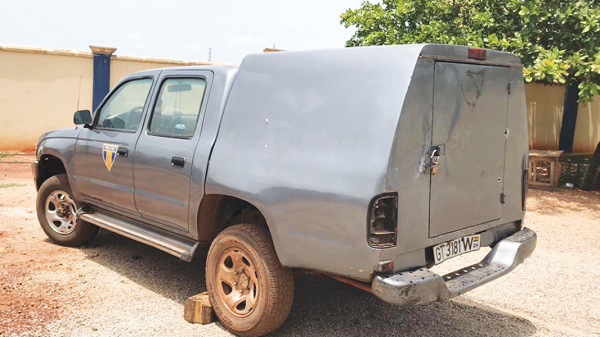
Bullion van ‘deception’
My deep condolences to the family of the police officer and the lady who fell victim to the fatal daylight robbery incident involving a bullion van carrying cash for a bank in Accra on June 14, 2021. The sad thing is the recurrence of the same problem, with complete inertia on the part of all the key players who are clothed with the power to act.
Most cash vans, popularly known as bullion vans in Ghana, are substandard and the risks that the players in the financial sector, banks, insurers, service providers and policemen and women are exposed to are harrowing.
Advertisement
The qualities and minimum specifications for a bullion van are often not met. The problem is whether the Bank of Ghana (BoG) has regulations on standards or specifications for banks and carriers of money from one place to the another.
What about the Ghana Police Service, the National Security and the National Insurance Commission?
Practice
The practice has been that banks ignore these standards and specifications, and procure substandard ones to transport money, or they outsource to carriers who also do not have good vehicles. They procure ordinary pick-ups and convert the buckets into cash compartments, with ordinary aluminium steel, with easily breakable locking systems and padlocks.
The incident that happened at Circle in Accra, in front of Vodafone offices on March 16, 2012, where a bullion van of a bank was involved in an accident resulting in its doors opening, and passers-by scrambling for the cash that was scattered is a wakeup call to the regulator, the BoG, the banks,and other stakeholders.
Certification
We are not aware of any certification of the quality of bullion vans used by banks in Ghana. The BoG should immediately come out with some sort of certification.
The financial sector has only one asset, the public confidence, which must be protected at all cost to ensure financial stability.
Most banks outsource the service of the movement of cash, ostensibly to cut costs of operations. It could be true that the outsourcing may reduce the costs of running those services, like the cost of staff employed to perform those tasks and the acquisition and maintenance costs of the vehicles.
However, other costs and risks may have far-reaching consequences. The outsourcing craze and its associated risks, including disruptions in operations, the waste of time and cost of investigations, reputational risks, and the higher insurance premiums after any such incident, and most especially, the loss of human lives, are great.
The profitability and cost-cutting motive of the service providers/carriers may even increase the risk exposure of the banks. They may hold the view that, after all, the cash and the vehicle are insured by the bank or themselves.
Insurance companies also hardly insist on the quality and robustness of the means of the transportation. The unhealthy competition among the insurance companies compels them to ignore some of those key issues that expose them even more.
They invoke clauses when it is time for claims to address some of the concerns that could have been avoided from the onset.
The Ghana Police Service put their staff in such vehicles, thereby exposing them to the risk of attack without bullet-proof vests.
Specification
A more robust specification (bullet/fire proof vans with secure locking systems) in line with international standards, best practice and effective risk management principles should be instituted by the BoG and other stakeholders, for the banks and financial institutions, as well as providers of services in the carrying of money to comply.
The insurance companies must have standards to be met by the banks and those who convey money.
The National Insurance Commission should enforce that. The National Security outfit should also be involved in enforcing standards.
The Ghana Police Service, who provides escort services to the banks, must insist on standards that will minimise the risk they expose the lives of the policemen and women to.
Prevention is better than cure and a stitch in time saves nine.
The writer is Bartholomew Darko
Writer’s E-mail: [email protected]



